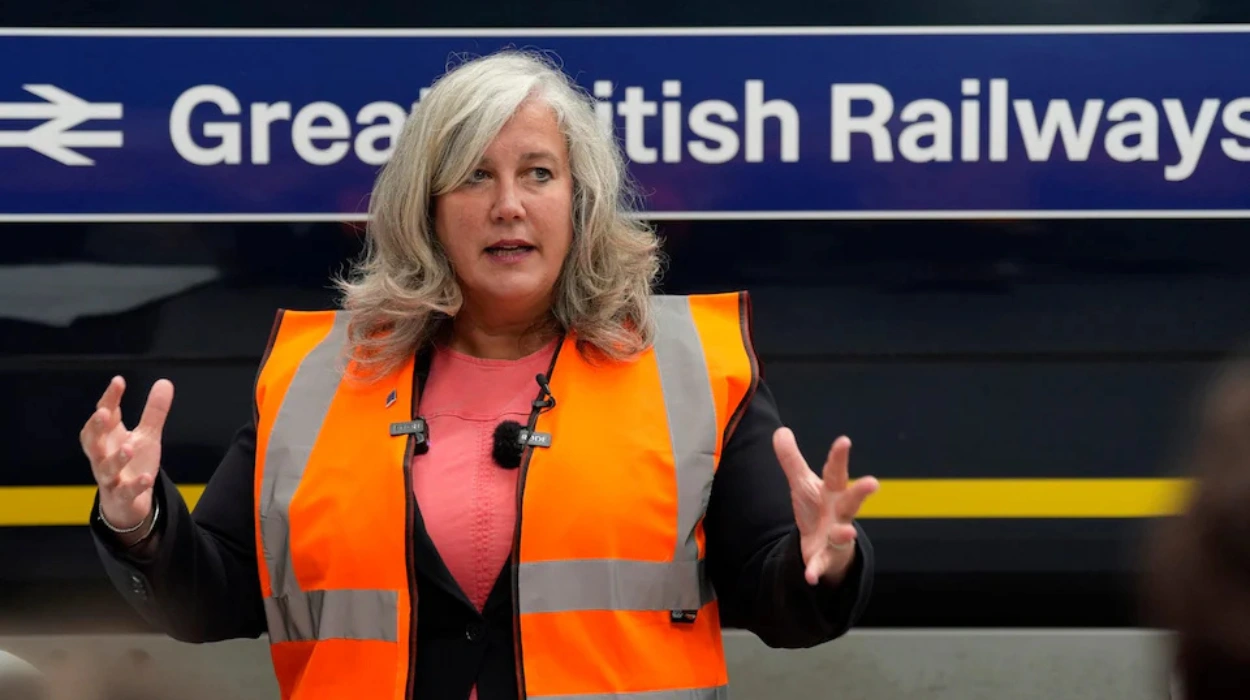UK (Parliament Politics Magazine) – DfT warns UK rail directors could face jail for using unqualified staff to prosecute fare dodgers, risking mass overturned convictions.
As reported by The Telegraph, rail bosses could face jail for letting unqualified staff prosecute alleged fare dodgers.
What warning did the DfT issue to rail directors over fare prosecutions?
The Department for Transport has warned company directors that permitting non-lawyers to act as court prosecutors for fare offences may hold them legally responsible.
An internal DfT memo indicates thousands of criminal cases against rail passengers before April 2016 may be invalid “because they were instituted unlawfully.”
Heidi Alexander, Transport Secretary, has warned train firms to ensure ticket enforcement is fair and not punish genuine mistakes.
The UK rail network offers 55 million fares, most with separate conditions, restrictions, and rules on when they can be used.
Earlier this year, 75,000 wrongful fare evasion convictions were removed after the government found train companies had no legal authority to bring the cases.
What did Heidi Alexander say about lay prosecutors and ticketing reform?
In a letter published by the government on Wednesday, Heidi Alexander warned that train firms must stop using so-called “lay prosecutors” and staff lacking formal legal training should not bring cases against rail passengers.
She accepted an Office of Rail and Road report in full, which urged simpler ticketing and prioritising passenger education over legal action for minor fare mistakes.
Ms Alexander said,
“My officials wrote to all operators in June on the specific issue of lay prosecutors.”
She stated,
“It is your responsibility to ensure that you are adequately protecting revenue in a cost-effective but lawful way, and where it is appropriate, you should continue using prosecutions as part of a robust and proportionate revenue protection strategy.”
Ms Alexander added,
“However, as ‘good’ and ‘efficient’ operators, we would not expect you to use lay prosecutors to present cases in court and carry out other regulated legal activities until you are confident that it is lawful to do so, having taken advice as appropriate.”
How did the DfT railway group describe legal risks in its accounts?
Annual accounts for DfT’s arms-length railway company, which were released in June, added,
“This is an emerging issue and at the time of the approval of the accounts there is no way to reliably estimate the value of any possible liability or the extent of any obligation arising in respect of the Group.”
Rail companies remain unsure how many convictions will be erased or how much they must repay in fines, compensation, and legal fees.
What did a Government source say about fare evasion and ticketing reform?
A government insider stated,
“Fare evasion costs the taxpayer hundreds of thousands of pounds a year and dents confidence in our railway, so we’re dead serious about tackling it.”
They added,
“But enforcement must be proportionate. We can’t have operators going after an older person faced with an incomprehensible system, or a student who has made an honest mistake. We’ll set out our full response to the ORR report in due course, and Great British Railways will simplify fares and ticketing – restoring a railway the public can be proud of again.”
What did the DfT’s legal advice say about lay prosecutors and criminal liability?
The DfT’s legal advice stated,
“There is a statutory defence that the accused ‘did not know, and could not reasonably have been expected to know, that the offence was being committed.”
It said,
“The defence becomes less likely to be available with each passing day and in particular each passing day subsequent to legal advice being given.”
The advice added,
“Consideration will need to be given to the criminal liability of individual lay prosecutors, the TOCs and the individual liability of TOC directors under the relevant provisions.”
Which train companies will be affected by reimbursements for wrongful convictions?
- LNER
- Northern
- TransPennine Express
- South Western Railway
- Southeastern
What are critics saying about the erasure of fare evasion convictions?
Critics argue that the erasure of thousands of fare evasion convictions faced criticism over legal technicalities. At the same time, rail insiders maintain that those affected were likely not entirely innocent.
The rail prosecutions have been likened to the Post Office scandal, in which state-backed companies also carried out private prosecutions against the public.
Which legal risks do train company directors face over lay prosecutors?
Train operator directors could face jail for allowing unqualified staff to prosecute cases against passengers.
Under section 14 of the Legal Services Act 2007, it is illegal for people who are not lawyers to do legal work. Breaking this law can lead to up to two years in prison or a £5,000 fine.
Key details about Transport for London
TfL operates 11 Tube lines, the DLR, London Overground, Elizabeth line, trams, and buses. It carries 5 million passengers daily.
It manages 249 miles of rail, including the world’s oldest metro, which opened in 1863. The regulator also runs 8,600 buses on 675 routes, with over 1 billion journeys each year.


